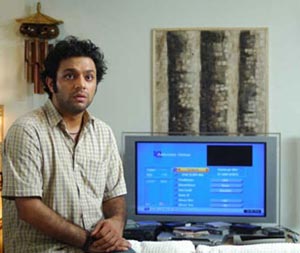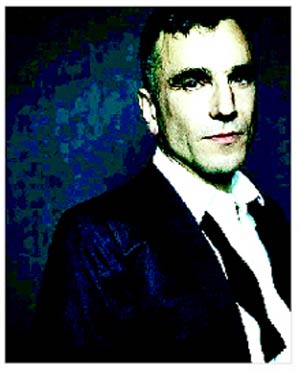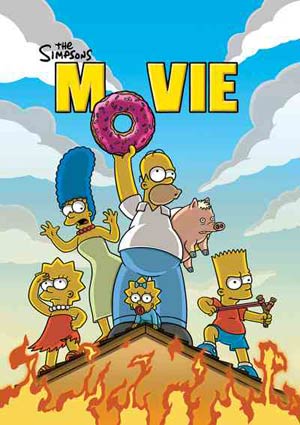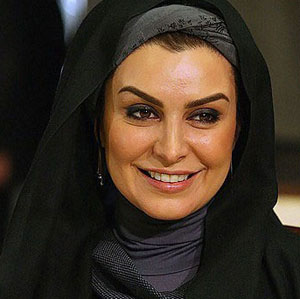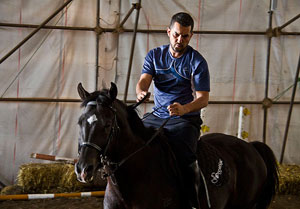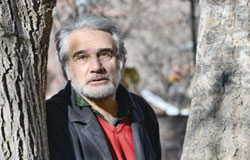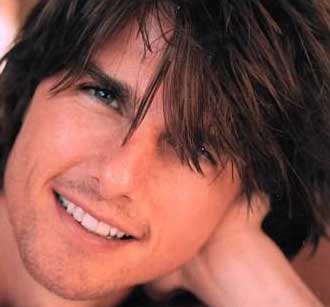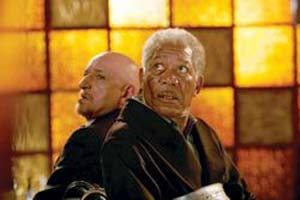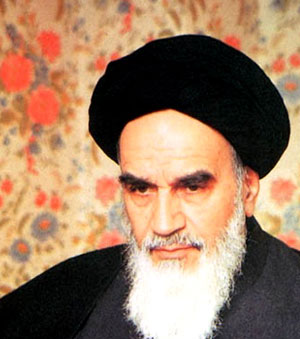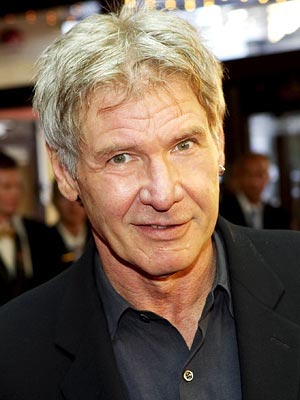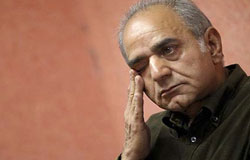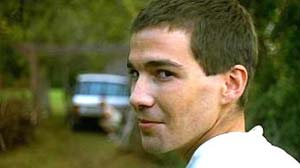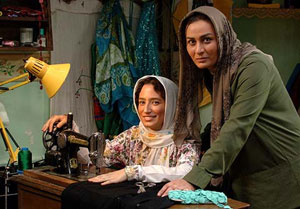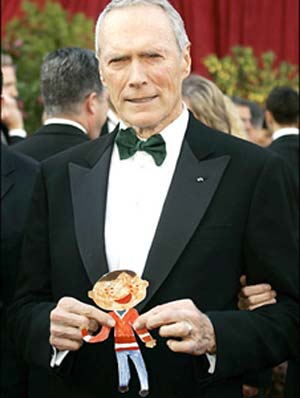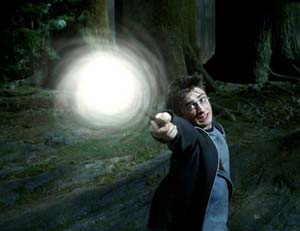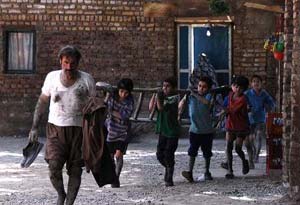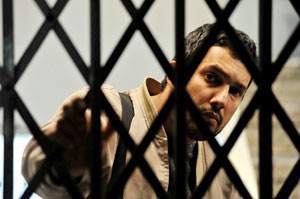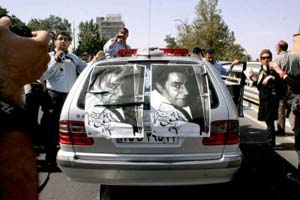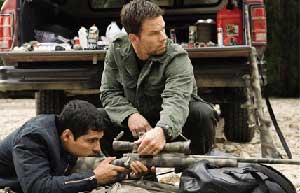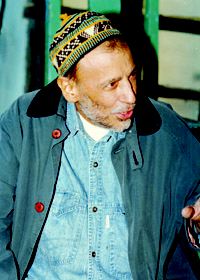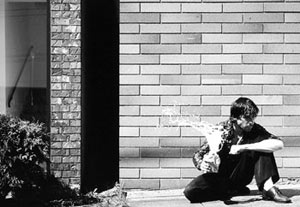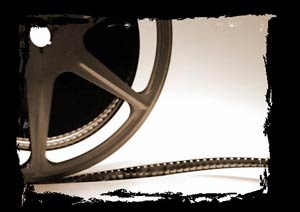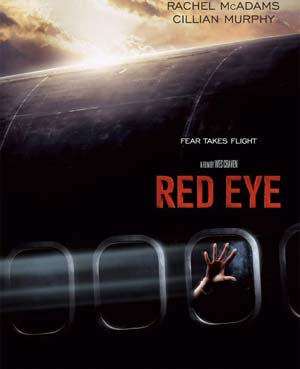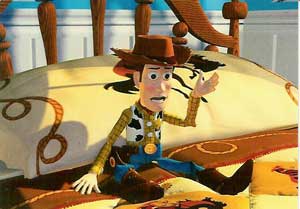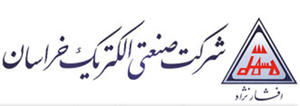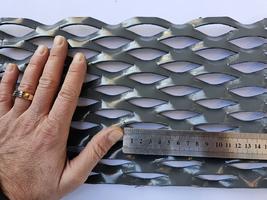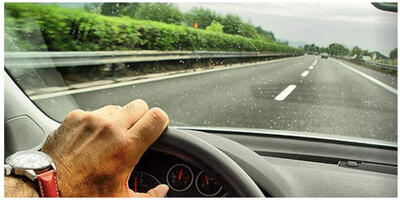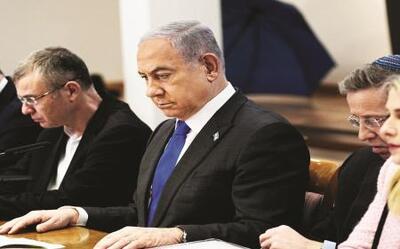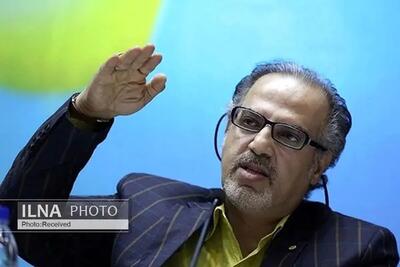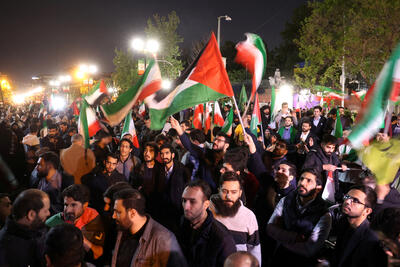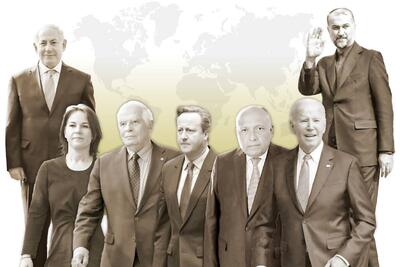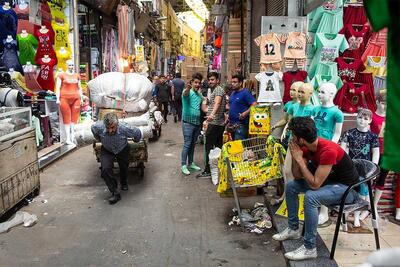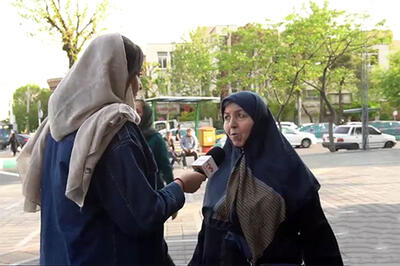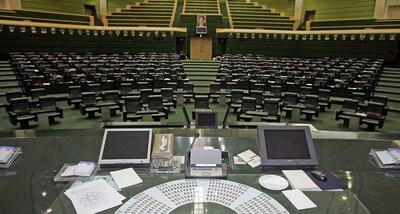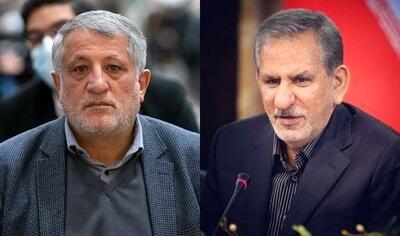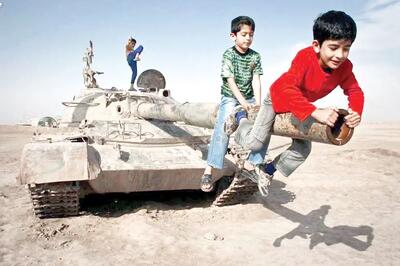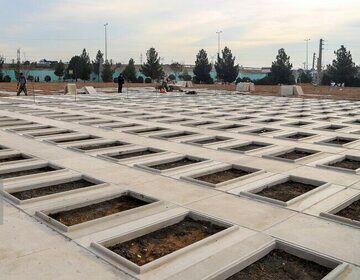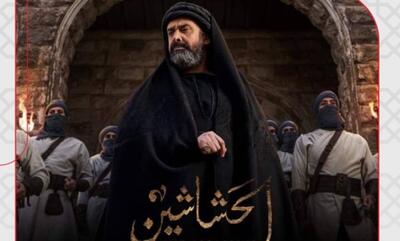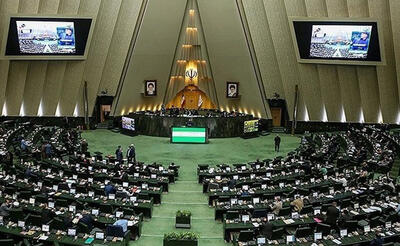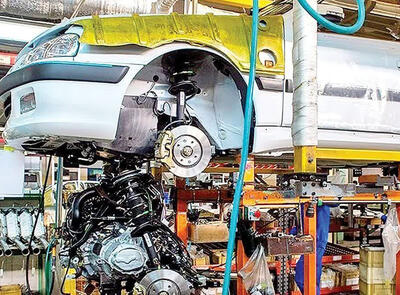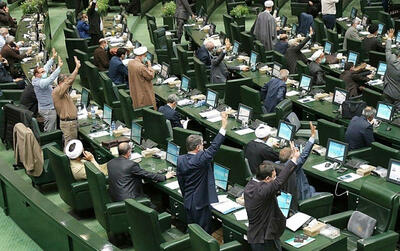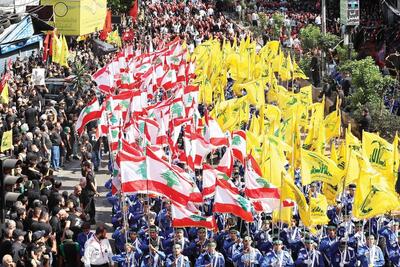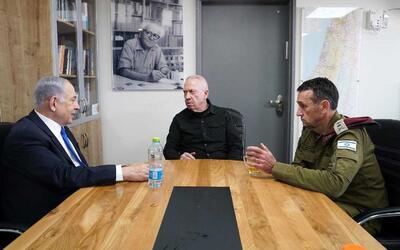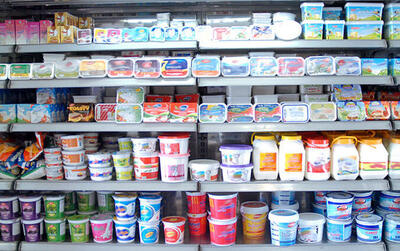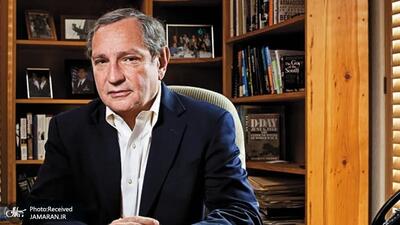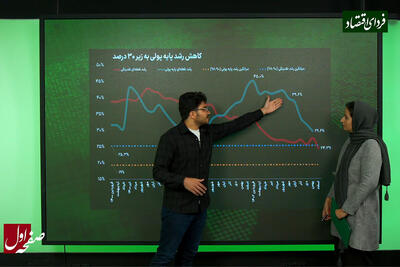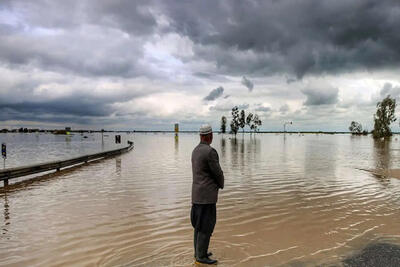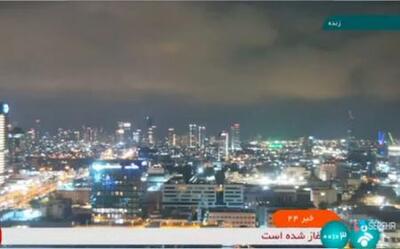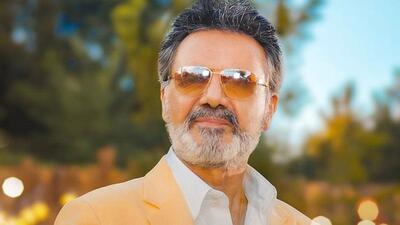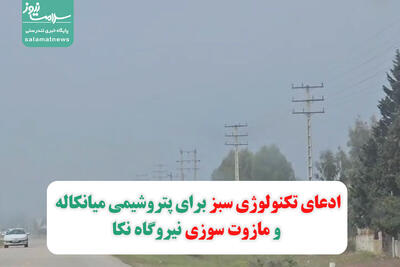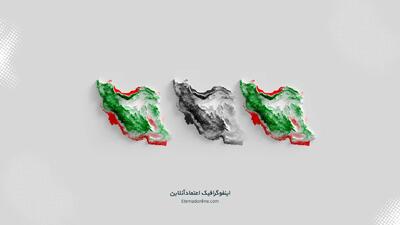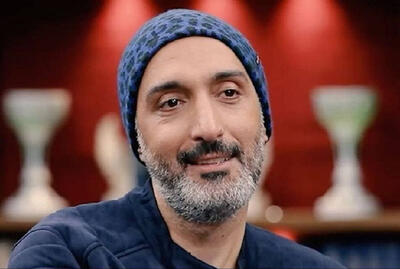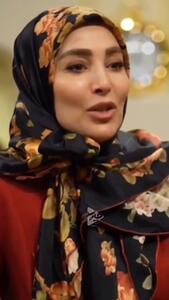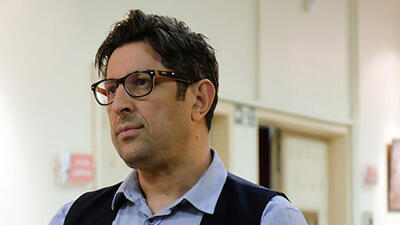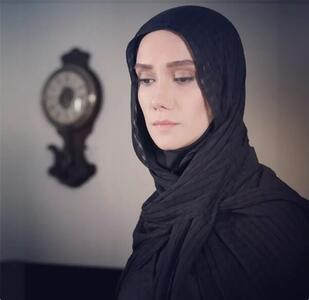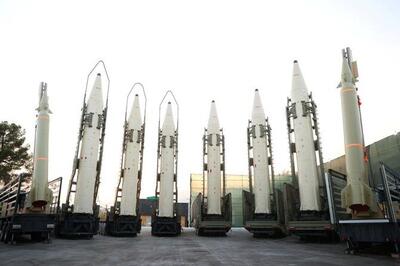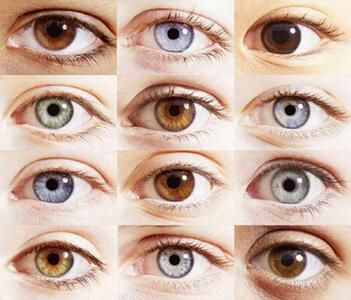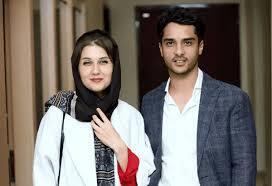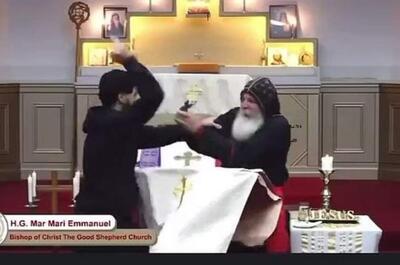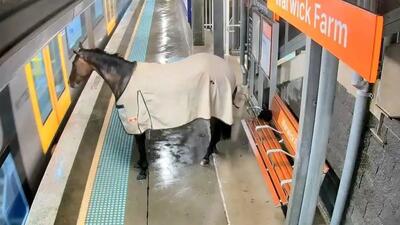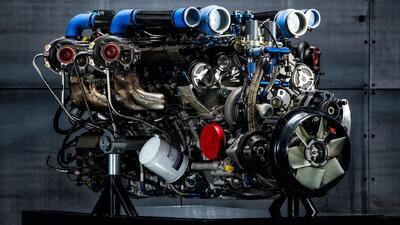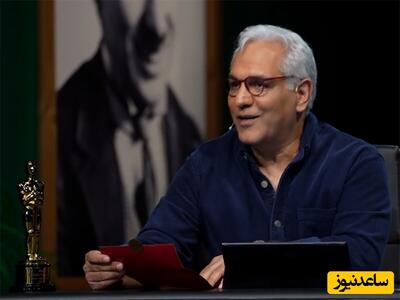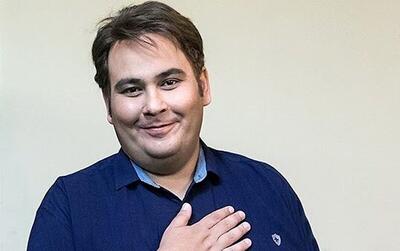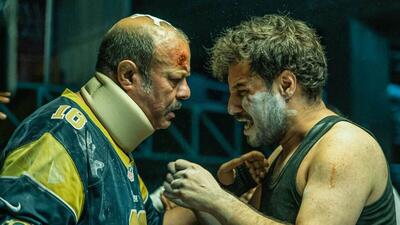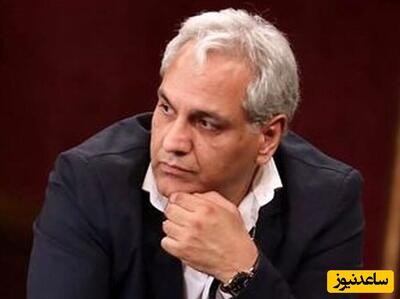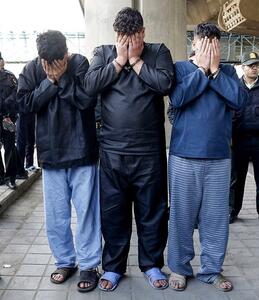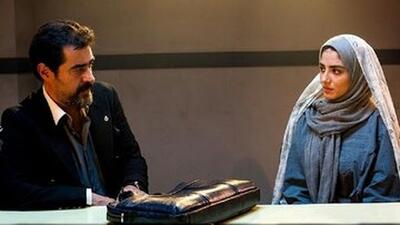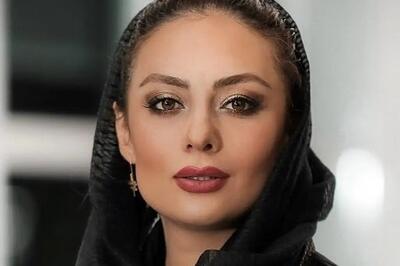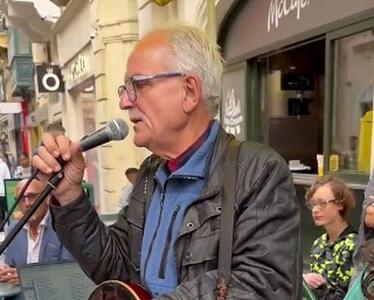سه شنبه, ۲۸ فروردین, ۱۴۰۳ / 16 April, 2024
Certified Copy
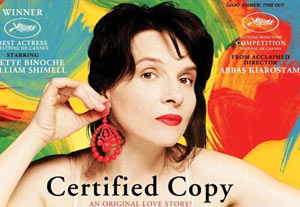
After years of working on photography, poetry and more experimental films, Abbas Kiarostami makes an engaging return to narrative cinema in a delicate, bittersweet comedy set in romantic Italy. "Certified Copy" slyly explores the ins and outs of marriage and the many ways men and women fail to think alike. French star Juliette Binoche will give the film a leg up in Europe, though wide international audiences are probably not in the cards for such an off-beat item. This erudite film is spoken in three languages, English, French and a bit of Italian.
The sardonically humorous story of a man and a woman whose marriage has gone cold echoes Roberto Rossellini's critically revered "Voyage in Italy" (1954), in which a British couple played by George Sanders and Ingrid Bergman come to Naples on the verge of divorce and find reconciliation amid the mysteries of nature, art and religious belief. Kiarostami is not so optimistic.
But he is strangely playful here, perhaps under the influence of the bright Tuscan sun, and far from the traffic-choked streets of Tehran. Like "Ten" and "Shirin," a woman is the central figure and the film grapples, not always successfully, with her alien psychology. The opening scenes are particularly slippery as the characters struggle to get established.
More Cannes coverage
At a formal book lecture, an attractive but flighty French single mom (Binoche) running an art gallery in Tuscany meets British writer James Miller (played with great wit and aplomb by the operatic baritone William Shimell). She clumsily picks him up by inviting him to visit her gallery. He curtly informs her, however, that he would prefer to spend the sunny day driving around before his train leaves.
This is, of course, an excuse for the Kiarostami Ur-scene of a discussion in a moving vehicle, where the male-female clash begins. Binoche's aggressive outbursts against the distinguished writer seem quite out of place as she questions his philosophical ideas and gets huffy over his completely innocuous remarks. It's her romantic against his pragmatic, from the word go.
Binoche has a chance to display her noteworthy gifts as a comedienne, switching effortlessly from English to French and Italian to build a character that is resentful, manipulative and seductive all at once. As the day wears on, she fends off her young son's annoying phone calls while blatantly coming on to the handsome James.
Stopping in a picturesque little town, they run into a wedding (and the film is full of weddings.) She instantly brightens up and insists they take pictures with the bridal couple, much against his wishes. Thanks to a misunderstanding with some locals, she gets him to pretend they are a married couple, which opens the doors to a series of amusing spats. The story takes an unexpected turn in a pivotal scene in a restaurant, before it comes to a touching but satisfying conclusion.
One might question the characterization of the woman as too stereotypically feminine, lacking any masculine traces apart from her baggage of angry resentment. Binoche makes her appealing in a brief scene when she puts on lipstick and dangling earrings in a futile attempt to attract James' interest.
In his first time on screen, Shimell brings his skill at interpreting complex operatic characters to bear in a film sans music. His elegant cool is very close to George Sanders', making him a perfect Kiarostami stand-in. He gets to talk about art a bit, reflecting on its impact on the public and the meaning of "original" and copy; though this isn't really taken too far in the script unless we think of the false married couple as a copy of some lost original.
Scriptwriter Jean-Claude Carriere appears in a delicious cameo as a wise tourist who gives James a bit of advice about how to handle women.
Venue: Festival de Cannes -- Competition
Sales: MK2
Production companies: MK2 Productions (France), Bibi Films (Italy), France 3 Cinema
Cast: Juliette Binoche, William Shimell, Jean-Claude Carriere, Agathe Natanson
Director: Abbas Kiarostami
Screenwriter: Abbas Kiarostami
Executive producer: Gaetano Daniele
Producers: Angelo Barbagallo, Charles Gillibert, Marin Karmitz, Nathanael Karmitz
Director of photography: Luca Bigazzi
Production designers: Giancarlo Basili, Ludovica Ferrario
Costume designer: Marzia Nardone
Editor: Bahman Kiarostami
No rating, 107 minutes
Certified Copy -- Film Review
By Deborah Young, May 18, 2010 05:06 ET
"Certified Copy"
Bottom Line: Kiarostami's sardonic reflection on marriage is playful, engaging Euro art cinema under the Tuscan sun.
CANNES -- After years of working on photography, poetry and more experimental films, Abbas Kiarostami makes an engaging return to narrative cinema in a delicate, bittersweet comedy set in romantic Italy. "Certified Copy" slyly explores the ins and outs of marriage and the many ways men and women fail to think alike. French star Juliette Binoche will give the film a leg up in Europe, though wide international audiences are probably not in the cards for such an off-beat item. This erudite film is spoken in three languages, English, French and a bit of Italian.
The sardonically humorous story of a man and a woman whose marriage has gone cold echoes Roberto Rossellini's critically revered "Voyage in Italy" (1954), in which a British couple played by George Sanders and Ingrid Bergman come to Naples on the verge of divorce and find reconciliation amid the mysteries of nature, art and religious belief. Kiarostami is not so optimistic.
But he is strangely playful here, perhaps under the influence of the bright Tuscan sun, and far from the traffic-choked streets of Tehran. Like "Ten" and "Shirin," a woman is the central figure and the film grapples, not always successfully, with her alien psychology. The opening scenes are particularly slippery as the characters struggle to get established.
More Cannes coverage
At a formal book lecture, an attractive but flighty French single mom (Binoche) running an art gallery in Tuscany meets British writer James Miller (played with great wit and aplomb by the operatic baritone William Shimell). She clumsily picks him up by inviting him to visit her gallery. He curtly informs her, however, that he would prefer to spend the sunny day driving around before his train leaves.
This is, of course, an excuse for the Kiarostami Ur-scene of a discussion in a moving vehicle, where the male-female clash begins. Binoche's aggressive outbursts against the distinguished writer seem quite out of place as she questions his philosophical ideas and gets huffy over his completely innocuous remarks. It's her romantic against his pragmatic, from the word go.
Binoche has a chance to display her noteworthy gifts as a comedienne, switching effortlessly from English to French and Italian to build a character that is resentful, manipulative and seductive all at once. As the day wears on, she fends off her young son's annoying phone calls while blatantly coming on to the handsome James.
Stopping in a picturesque little town, they run into a wedding (and the film is full of weddings.) She instantly brightens up and insists they take pictures with the bridal couple, much against his wishes. Thanks to a misunderstanding with some locals, she gets him to pretend they are a married couple, which opens the doors to a series of amusing spats. The story takes an unexpected turn in a pivotal scene in a restaurant, before it comes to a touching but satisfying conclusion.
One might question the characterization of the woman as too stereotypically feminine, lacking any masculine traces apart from her baggage of angry resentment. Binoche makes her appealing in a brief scene when she puts on lipstick and dangling earrings in a futile attempt to attract James' interest.
In his first time on screen, Shimell brings his skill at interpreting complex operatic characters to bear in a film sans music. His elegant cool is very close to George Sanders', making him a perfect Kiarostami stand-in. He gets to talk about art a bit, reflecting on its impact on the public and the meaning of "original" and copy; though this isn't really taken too far in the script unless we think of the false married couple as a copy of some lost original.
Scriptwriter Jean-Claude Carriere appears in a delicious cameo as a wise tourist who gives James a bit of advice about how to handle women.
Venue: Festival de Cannes -- Competition
Sales: MK2
Production companies: MK2 Productions (France), Bibi Films (Italy), France 3 Cinema
Cast: Juliette Binoche, William Shimell, Jean-Claude Carriere, Agathe Natanson
Director: Abbas Kiarostami
Screenwriter: Abbas Kiarostami
Executive producer: Gaetano Daniele
Producers: Angelo Barbagallo, Charles Gillibert, Marin Karmitz, Nathanael Karmitz
Director of photography: Luca Bigazzi
Production designers: Giancarlo Basili, Ludovica Ferrario
Costume designer: Marzia Nardone
Editor: Bahman Kiarostami
نمایندگی زیمنس ایران فروش PLC S71200/300/400/1500 | درایو …
دریافت خدمات پرستاری در منزل
pameranian.com
پیچ و مهره پارس سهند
خرید میز و صندلی اداری
خرید بلیط هواپیما
گیت کنترل تردد
ایران اسرائیل ایران و اسرائیل وعده صادق جنگ ایران و اسرائیل جنگ حمله موشکی ایران به اسرائیل سپاه پاسداران انقلاب اسلامی سپاه پاسداران موشک حمله موشکی جمهوری اسلامی ایران
تعطیلی مدارس هواشناسی سلامت تهران پلیس وزارت بهداشت حجاب سازمان هواشناسی دستگیری فضای مجازی شهرداری تهران قتل
خودرو قیمت خودرو بازار خودرو قیمت دلار مالیات قیمت طلا بورس دلار قیمت بانک مرکزی قیمت سکه بنزین
تلویزیون بازیگر شهید سینمای ایران هنرمندان سینما موسیقی تئاتر کتاب
دانشگاه تهران
رژیم صهیونیستی عملیات وعده صادق عراق فلسطین آمریکا غزه اسراییل جنگ غزه روسیه جو بایدن انگلیس دمشق
فوتبال پرسپولیس استقلال کشتی فرنگی تراکتور لیگ برتر جواد نکونام بازی باشگاه پرسپولیس کشتی باشگاه استقلال لیگ برتر انگلیس
هوش مصنوعی اپل ایلان ماسک کره جنوبی ماهواره گوگل تلفن همراه سرعت اینترنت
چای قهوه کلسترول سلامت روان آبله مرغان زوال عقل بارداری فصل بهار کمبود دارو




